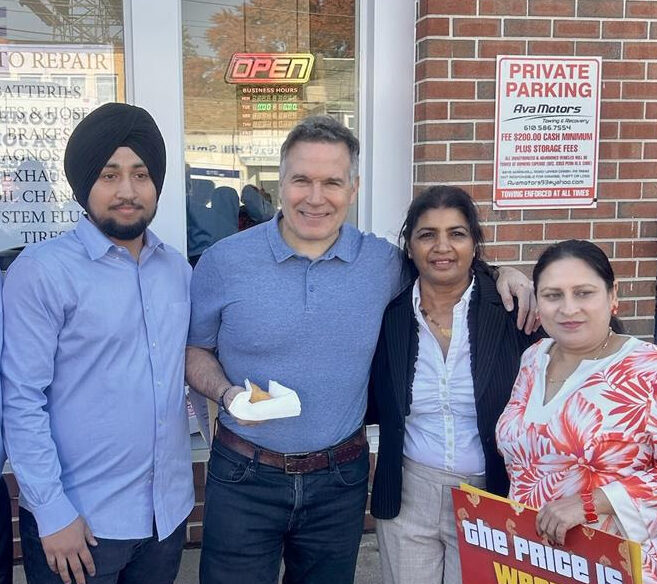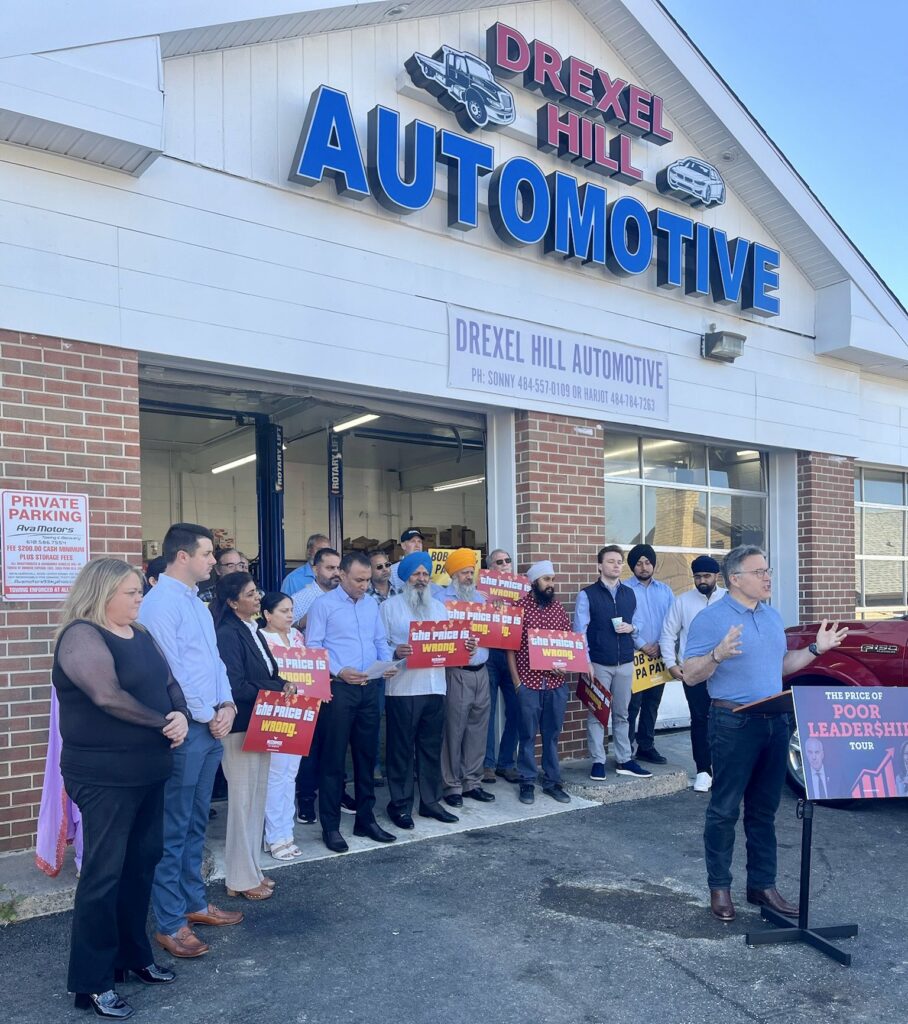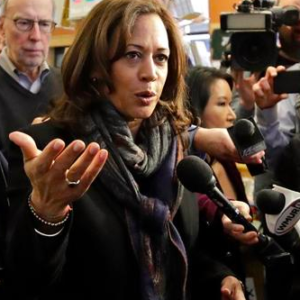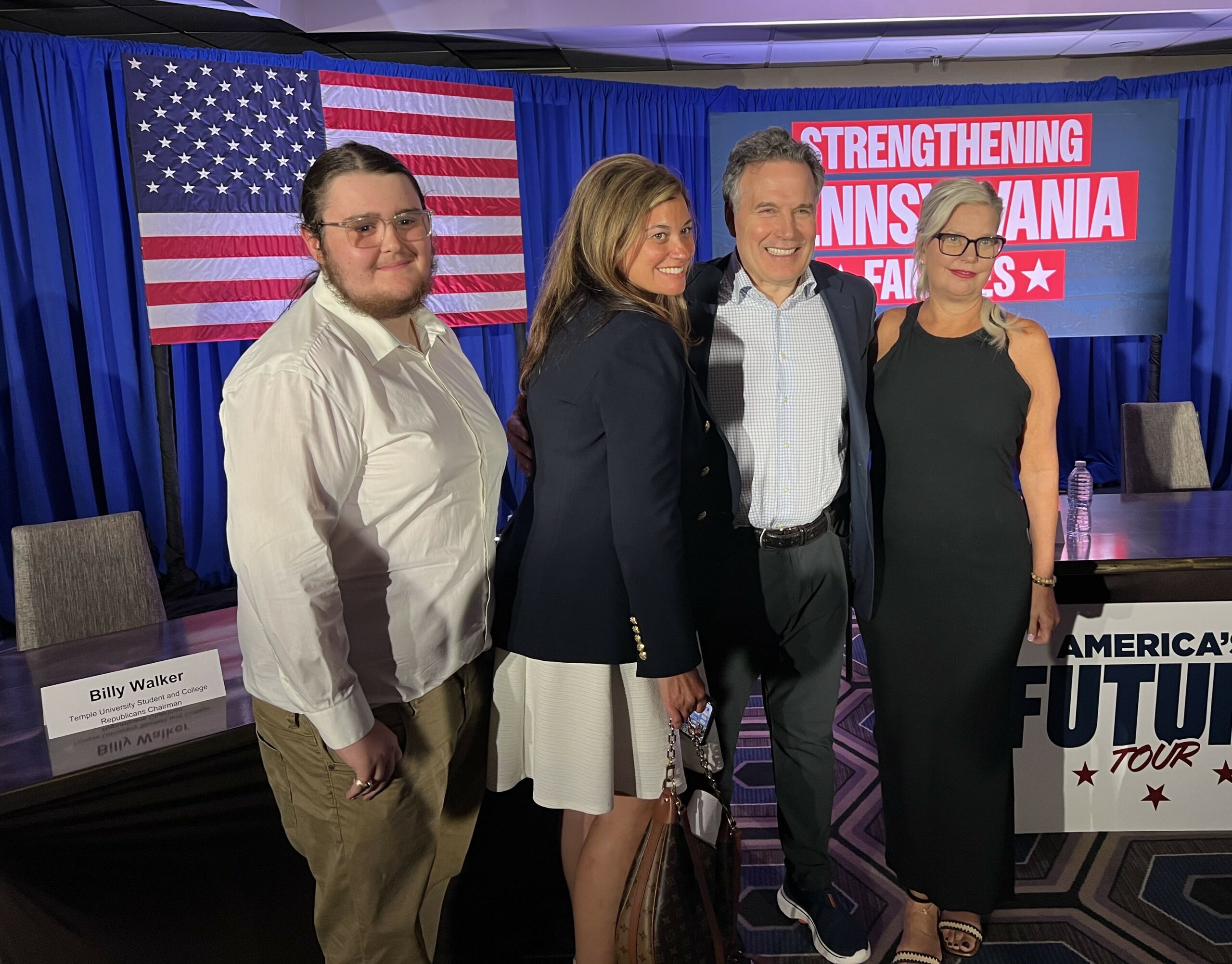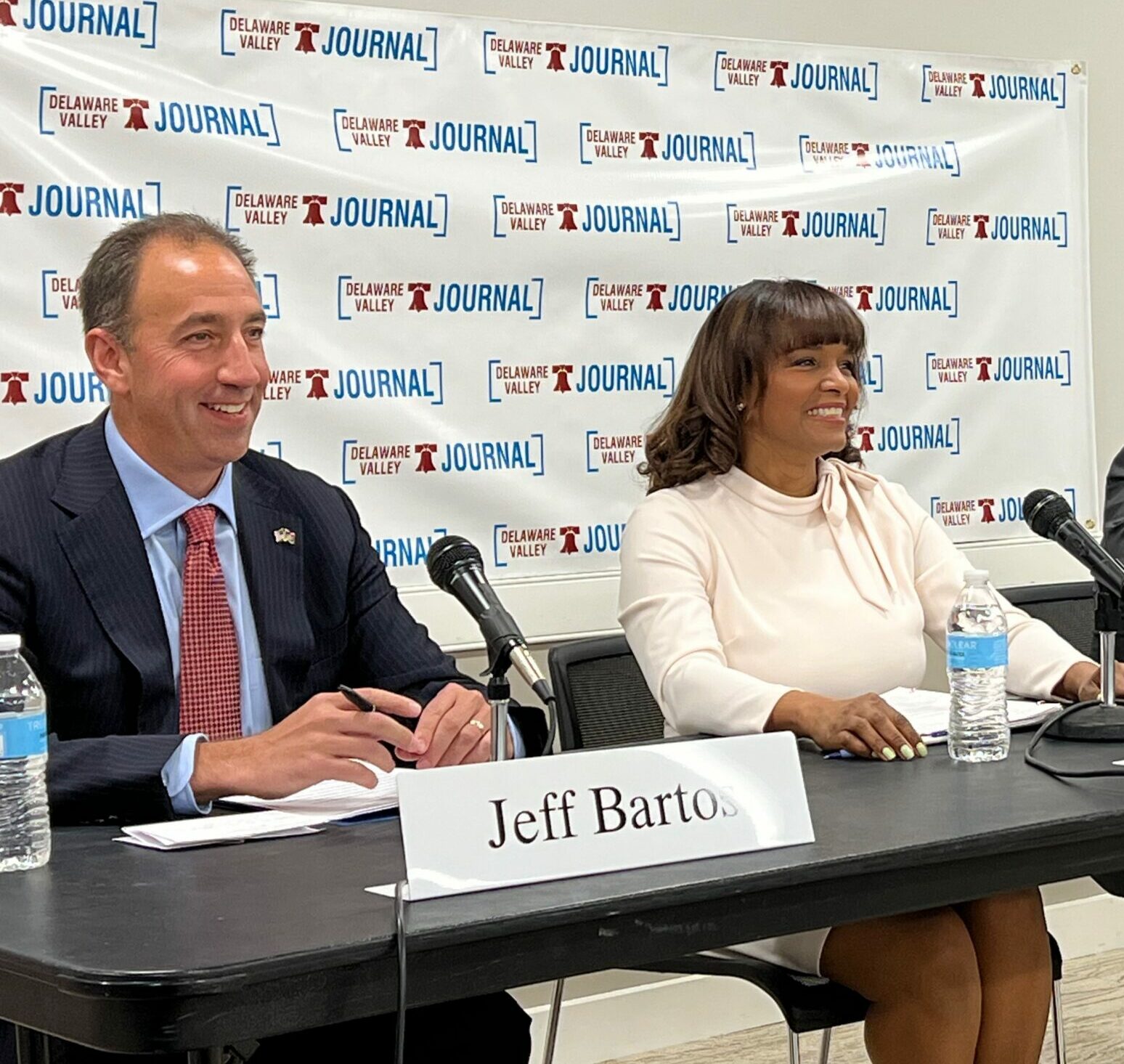TOPPER: We Can Stop the Pinch Who Stole Christmas

It is a few days before Christmas and across the commonwealth. Pennsylvania families are busy looking for last-minute holiday gifts, planning family gatherings, and engaging in charitable efforts to help those in their communities during the holiday season.
However, this season is another stark reminder that every Pennsylvanian is facing the same staggering reality: The cost of Christmas is higher than it was last year and the ability to provide for a meaningful family celebration during this holiday season is increasingly out of reach.
Despite the federal government’s continued assurances that inflation’s impact on family budgets is waning, the numbers speak for themselves in terms of the continued negative impact increasing costs are having on family budgets across the country.
November’s recently released Consumer Price Index numbers show year-over-year inflation increased 2.7 percent with a .3 percent increase over the prior month. More regionally, the northeastern part of the United States saw year-over-year inflation increase an even higher 3.5 percent.
As it pertains to Christmas, PNC’s annual “Christmas Price Index” whimsically showed the cost of the 12 gifts of Christmas increased 5.4 percent over last year. Its review took a turn for the serious when PNC Asset Group’s Chief Investment Officer Amanda Agati said, “Believe it or not, we’re still seeing the cause and effect of the pandemic-inflation hangover, even nearly five years later…With years of steep price increases, we’d think inflation has nowhere to go, but we’d be wrong.”
Those numbers mean little for the Pennsylvania parents trying to put Christmas gifts under the tree or host a nice Christmas dinner for their family. The numbers they are looking at are more real; they are the dollars and cents of a bank account that is stretched too thin by rising energy, housing and food costs.
What they need is the financial pinch that continues to steal their Christmas to end and real relief to come to their budgets.
As we enter a new legislative session, that is something Pennsylvania’s House Republicans will be keeping at the forefront of our attention.
We are excited to continue our work to bring transformational change to Pennsylvania’s system of education and reduce government’s regulatory burdens.
In addition, our members will focus with urgency on ways that we can meaningfully put more money in the pockets of Pennsylvanians.
Last session, Republicans in both the House and the Senate stood unified in calling for a tax cut for Pennsylvania families. Now, it is incumbent upon us to continue an examination of our state finances to find ways to support and advance policies that return taxpayer investment directly back into the pockets of Pennsylvanians.
We also have much work we can do on the back end of cost savings.
While continued reduction of the Corporate Net Income Tax is smart policy, we need to examine the bipartisan-supported repeal of the sales tax prepayment that affects many small businesses, increases their business costs and ultimately costs consumers.
In addition, we must examine the energy cost driver impacting the bottom line of many Pennsylvania families.
We have been saying it for years, and it remains true today: Pennsylvania is an energy rich state. It is a failure of policymakers that we are not able to turn our home-grown energy assets into appreciably lower energy costs for Pennsylvanians.
Not only do we need to look at outside-the-box ways to help Pennsylvanians afford to heat and cool their homes and turn the lights on, but we also must also find tangible and short-term ways to increase both production of Pennsylvania-based energy resources and enhance our transmission capabilities to get our products to market.
Increasing production and transmission will not only lead to lower energy prices for Pennsylvanians, but will increase job opportunities and educational offerings, and grow communities to create an abundantly sustained Commonwealth.
By supporting policies that will directly put money back into the pockets of Pennsylvanians and lowering energy costs in both the short and long terms, Pennsylvania’s House Republicans are focused on stopping the financial pinch who stole Christmas in the past and making Christmas affordable again in the future.

